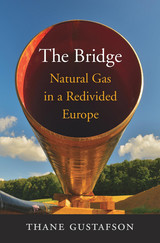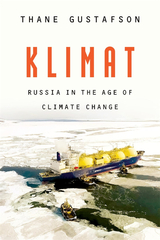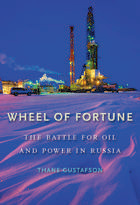
A Marginal Revolution Best Book of the Year
Winner of the Shulman Book Prize
A noted expert on Russian energy argues that despite Europe’s geopolitical rivalries, natural gas and deals based on it unite Europe’s nations in mutual self-interest.
Three decades after the fall of the Berlin Wall and the breakup of the Soviet empire, the West faces a new era of East–West tensions. Any vision of a modern Russia integrated into the world economy and aligned in peaceful partnership with a reunited Europe has abruptly vanished.
Two opposing narratives vie to explain the strategic future of Europe, one geopolitical and one economic, and both center on the same resource: natural gas. In The Bridge, Thane Gustafson, an expert on Russian oil and gas, argues that the political rivalries that capture the lion’s share of media attention must be viewed alongside multiple business interests and differences in economic ideologies. With a dense network of pipelines linking Europe and Russia, natural gas serves as a bridge that unites the region through common interests.
Tracking the economic and political role of natural gas through several countries—Russia and Ukraine, the United Kingdom, Germany, the Netherlands, and Norway—The Bridge details both its history and its likely future. As Gustafson suggests, there are reasons for optimism, but whether the “gas bridge” can ultimately survive mounting geopolitical tensions and environmental challenges remains to be seen.

A discerning analysis of the future effects of climate change on Russia, the major power most dependent on the fossil fuel economy.
Russia will be one of the countries most affected by climate change. No major power is more economically dependent on the export of hydrocarbons; at the same time, two-thirds of Russia’s territory lies in the arctic north, where melting permafrost is already imposing growing damage. Climate change also brings drought and floods to Russia’s south, threatening the country’s agricultural exports.
Thane Gustafson predicts that, over the next thirty years, climate change will leave a dramatic imprint on Russia. The decline of fossil fuel use is already underway, and restrictions on hydrocarbons will only tighten, cutting fuel prices and slashing Russia’s export revenues. Yet Russia has no substitutes for oil and gas revenues. The country is unprepared for the worldwide transition to renewable energy, as Russian leaders continue to invest the national wealth in oil and gas while dismissing the promise of post-carbon technologies. Nor has the state made efforts to offset the direct damage that climate change will do inside the country. Optimists point to new opportunities—higher temperatures could increase agricultural yields, the melting of arctic ice may open year-round shipping lanes in the far north, and Russia could become a global nuclear-energy supplier. But the eventual post-Putin generation of Russian leaders will nonetheless face enormous handicaps, as their country finds itself weaker than at any time in the preceding century.
Lucid and thought-provoking, Klimat shows how climate change is poised to alter the global order, potentially toppling even great powers from their perches.

A Foreign Affairs Best Book of the Year on Eastern Europe and the Former Soviet Republics
The Russian oil industry—which vies with Saudi Arabia as the world’s largest producer and exporter of oil, providing nearly 12 percent of the global supply—is facing mounting problems that could send shock waves through the Russian economy and worldwide. Wheel of Fortune provides an authoritative account of this vital industry from the last years of communism to its uncertain future. Tracking the interdependence among Russia’s oil industry, politics, and economy, Thane Gustafson shows how the stakes extend beyond international energy security to include the potential threat of a destabilized Russia.
“Few have studied the Russian oil and gas industry longer or with a broader political perspective than Gustafson. The result is this superb book, which is not merely a fascinating, subtle history of the industry since the Soviet Union’s collapse but also the single most revealing work on Russian politics and economics published in the last several years.”
—Robert Legvold, Foreign Affairs
“The history of Russia’s oil industry since the collapse of communism is the history of the country itself. There can be few better guides to this terrain than Thane Gustafson.”
—Neil Buckley, Financial Times
READERS
Browse our collection.
PUBLISHERS
See BiblioVault's publisher services.
STUDENT SERVICES
Files for college accessibility offices.
UChicago Accessibility Resources
home | accessibility | search | about | contact us
BiblioVault ® 2001 - 2024
The University of Chicago Press









